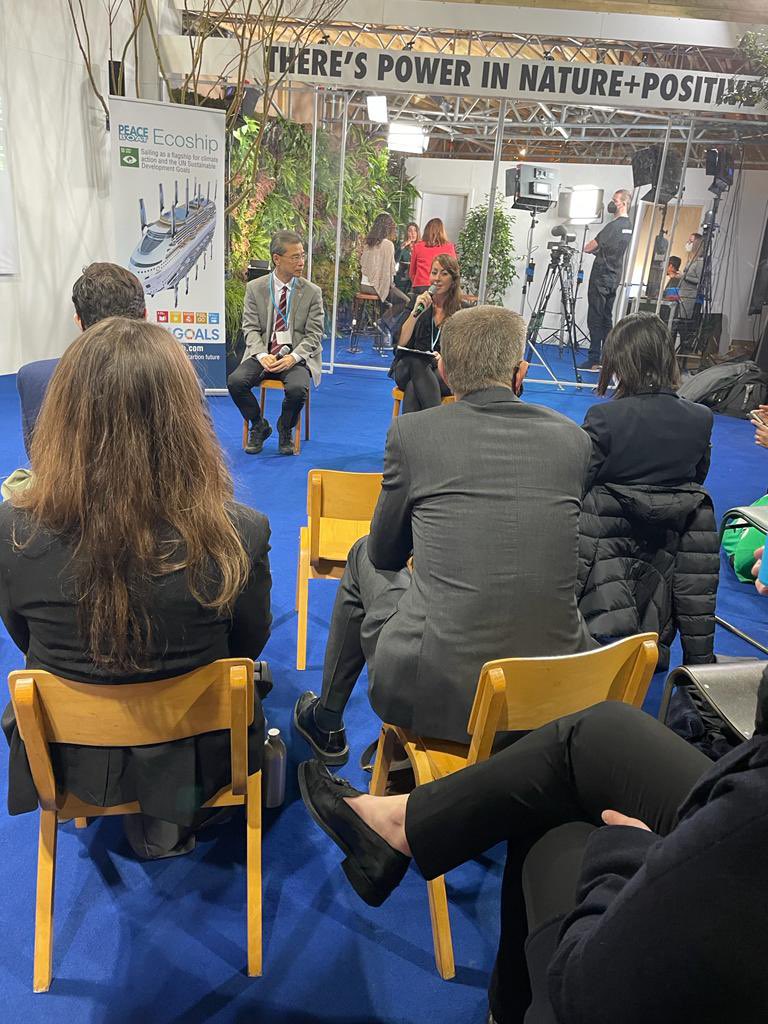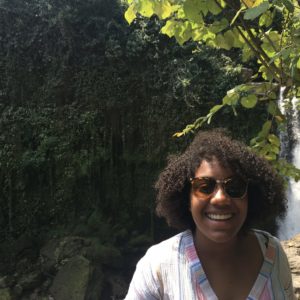Climate Education
COP panel examines the potential for a regenerative economy
November 16, 2021
On November 4, 2021 at COP26 (the 26th UN Conference of the Parties) in Glasgow, United Kingdom, a panel sponsored by HealRWorld and Zash.Global focused on how implementing a green economy will impact our economic future and the environment.
The panel was moderated by Emilie McGlone, director of Peace Boat US, and included panelists Michele Bongiovanni, founder and CEO of HealRWorld and Music4ClimateJustice; Peta Milan, CEO of Jet Group; Henk Rogers, founder and chairman of Blue Planet Alliance; and Yoshioka Tatsuya, founder of Peace Boat. Panelists each spoke from the perspective of their organizations about the need to create systemic change for a more regenerative economy.
According to the United Nations Environment Programme, a green economy is a “low carbon, resource efficient and socially inclusive” economy. Peta Milan added a layer of complexity to this definition, saying that we need to transition to an economy that is not only green, but also regenerative.
A regenerative economy can enable a systemic transformation of business models — moving past the status quo and into real innovation.
Blue Planet Alliance presented a proven example of this economic shift in the state of Hawai’i. In 2015, David Ige, governor of Hawai’i, signed into law a series of energy bills to help the state transition to 100% renewable energy by 2045.
“We are improving the environment, saving the planet, and reducing the cost of energy here all at the same time,” said Ige.

HealRWorld unites individuals and businesses that are committed to sustainability. Michele Bongiovanni spoke to the ability for people to change the systems in place that are not working for the economy or environment, citing that HealRWorld’s businesses are “three times more credit worthy than average businesses.”
“We can choose what companies we want to purchase from, we can choose to invest our money wisely, and know where our money is going because that is our responsibility to this planet,” said Bongiovanni.
The panel also underlined the role of youth, education, and collaboration in the transition to a more sustainable future and economy.
Emilie McGlone and Yoshioka Tatsuya discussed how Peace Boat travels the world, working with nonprofits, NGO leaders, youth, Indigenous communities, the private sector, and governments to develop collaborative, sustainable actions. Peace Boat’s youth initiative invites people ages 18-30 to come aboard and hone their leadership skills on UN Sustainable Development Goals.
Ending on a positive note about positive action through education, Milan said, “If we can start shifting how we think about things, out of these silos, and start developing more multi-disciplinary courses at school (and) more multi-disciplinary projects at school… (we) start really engaging with environments more powerfully — our own and others.”
The same can be said about climate literacy: It allows students to understand climate change in a systems-thinking approach while providing the skills, creative-thinking, and positivity needed for innovative solutions.
Through EARTHDAY.ORG’s Climate and Environmental Literacy Campaign, we are calling attention to the urgent need for climate literacy to support the transition to a green, regenerative economy. Join us by adding your name to our petition and rewatch our other events covering climate literacy, youth empowerment, climate restoration, and citizen science at COP26.

